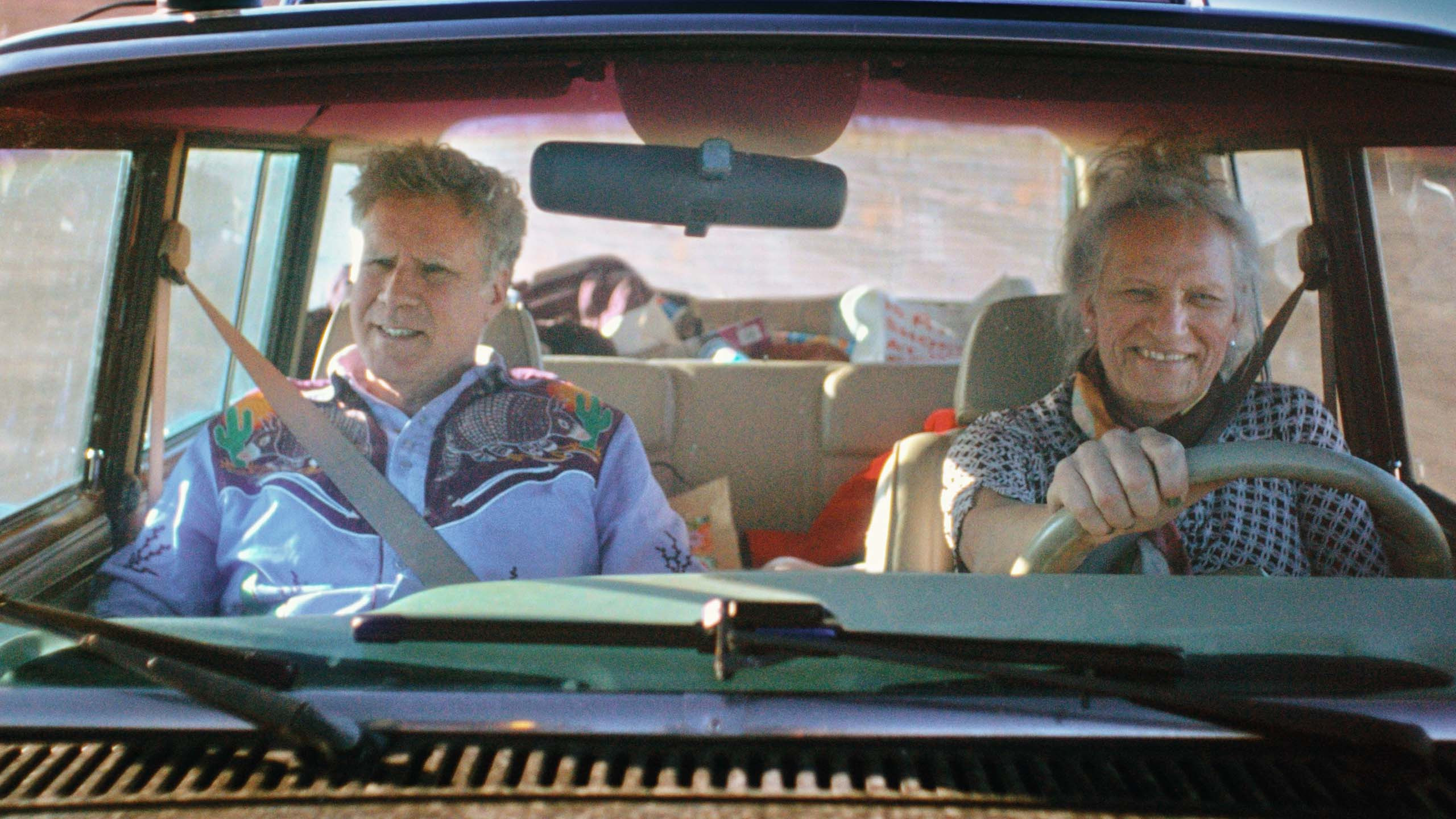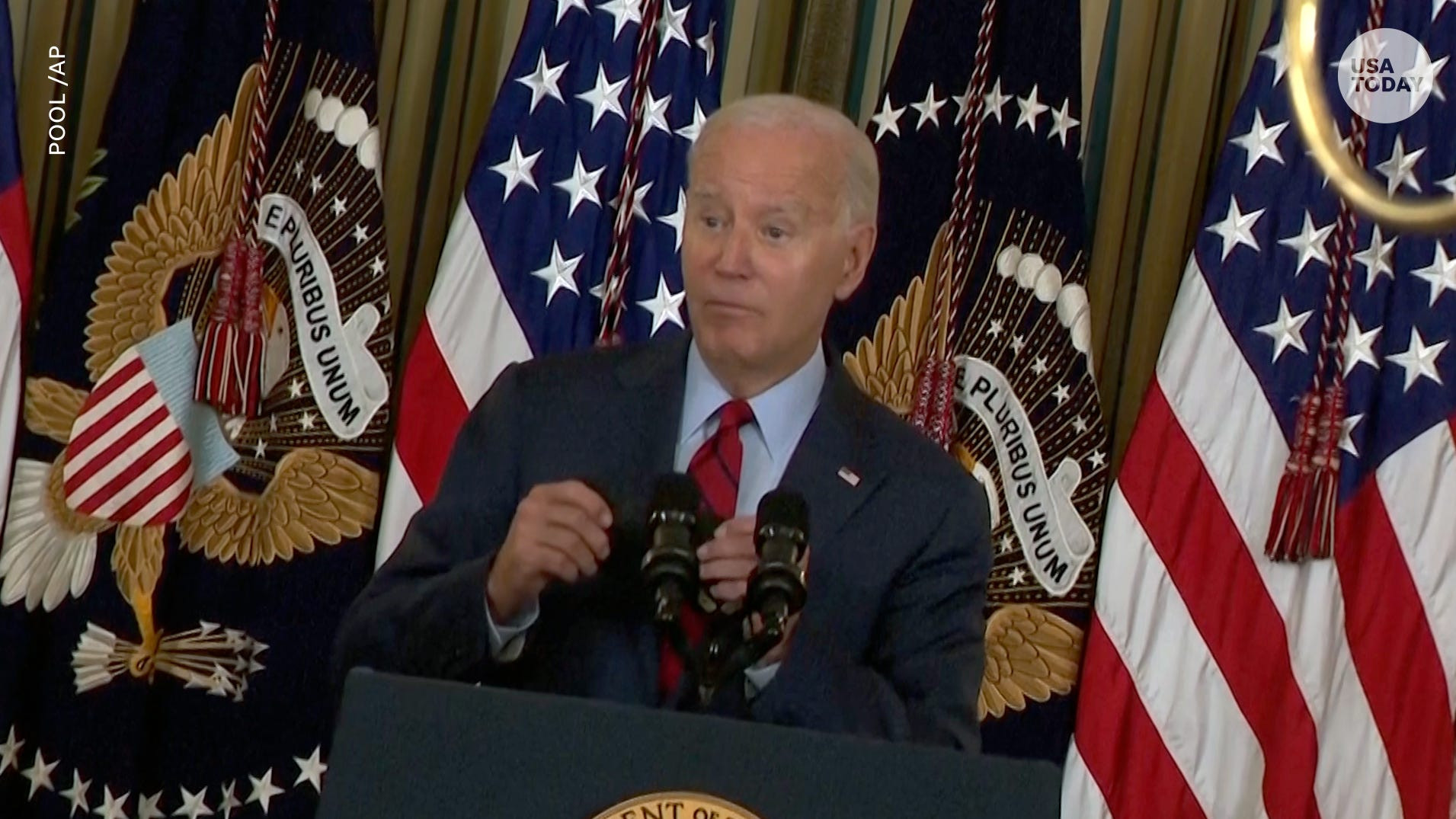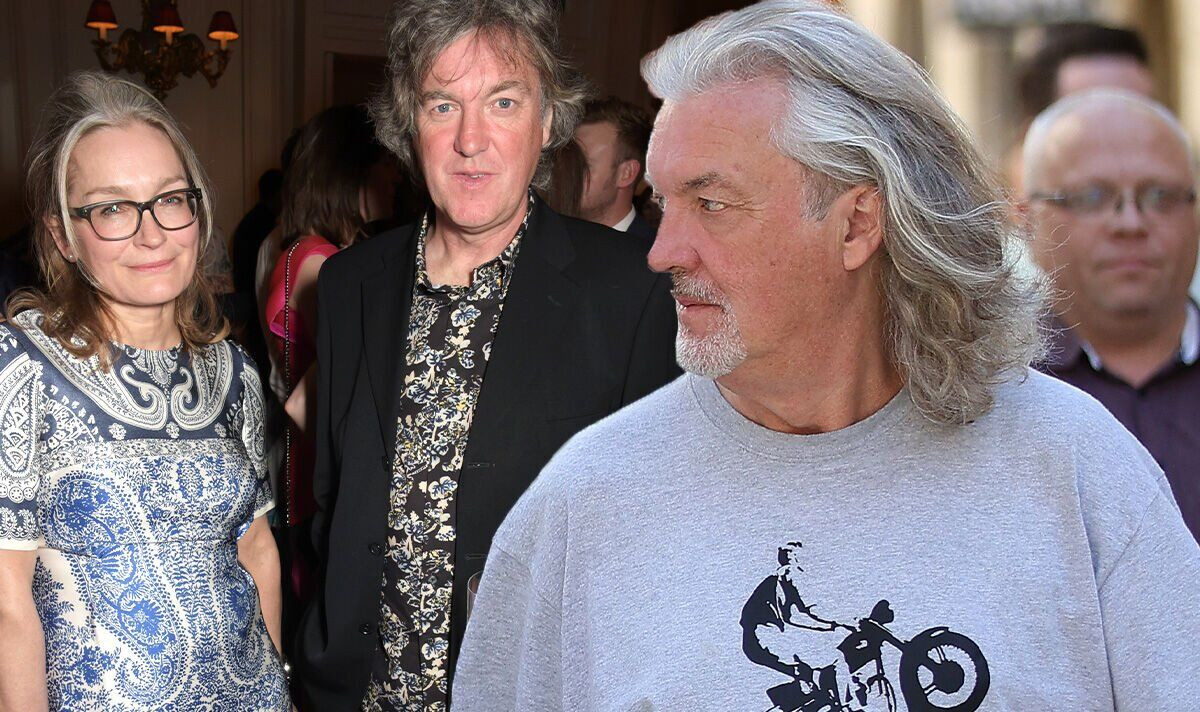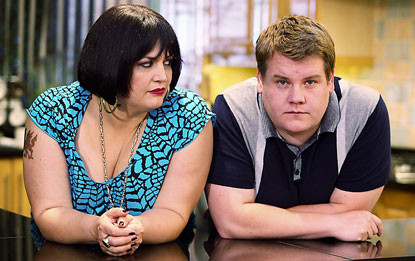Did you ever hear the one about the “Saturday Night Live” writer who came out as transgender to his friend Will Ferrell, and they took a road trip across the United States to see how the country reacts to transgender people? You haven’t? You should, because it’s pretty funny. And in the end, it’s no joke. It takes the form of a documentary called “Will and Harper.” It’s on Netflix.
Though I suspect the folks behind it would dislike this term, The movie is pretty unabashedly a teaching tool aimed at a country where maybe a third of the electorate not only has deep animosity towards transgender people but is being fed hate rhetoric about them daily. It’s affecting in its low-key way, thanks to the chemistry of its title personalities. And it works as the kind of buddy comedy Ferrell might’ve starred in at one time (and would probably have had to apologize for later). After all, buddy comedies with former “Saturday Night Live” cast members aren’t known for their sophisticated grasp of nuance.
Harper is Harper Steele, formerly Andrew Steele. She was at “Saturday Night Live” before Ferrell got there and championed him as a gifted comedian even though nobody there thought a lot of him when he was starting out, which became the basis for a beautiful friendship. During the pandemic, Ferrell received an email from Steele that read simply, “I’m old now, and as ridiculous and unnecessary as it may seem to report, I’ll be transitioning to live as a woman.” Ferrell was stunned because, as he puts it, “Andrew was an Iowa-born, 501 jeans, shitty beer, hitchhiking type of guy, basically a lovable curmudgeon with a super-weird, creative sense of humor”—which, as the movie shows us (in a way that corrects Ferrell’s perceptions without being strident about it) is a misperception about the sorts of people who transition.
To its credit, director Josh Greenbaum (“Barb and Star Go to Vista Del Mar”) ultimately weights the scales of interest more towards Harper Steele than Will Ferrell. This is not so much a movie about a straight and cisgender-identifying person learning how to accept his old pal in a new package. It turns Ferrell into an audience surrogate who has traveled the road of understanding and acceptance a long time ago and is reenacting it for the cameras, in a way. Ferrell says that after receiving the email, he wondered, ““How long did she feel this way? What made her keep this in for so long?” and says that in the immediate aftermath of the news, their friendship was in “uncharted waters,” but that feels like an exaggeration for storytelling’s sake. It’s pretty clear from the way these two interact on camera, as well as some other details, that there was never even a slight chance that Ferrell would reject Steele or even have a lot of issues to overcome.
Steele’s concerns are more pressing. In fact, they are quite literally life-or-death. Steele is from Iowa and says she “loves the United States, but I just don’t know if it loves me back right now.” She presents herself to the world differently than before but still loves the same stuff, including, in her words, “shi–y bars” and “truck stops” and the parts of the country where a body could disappear and nobody would ever find out.
This concern becomes immediately clear as the two discuss taking a road trip. The main concern is safety. Not so much the safety of these two within the context of a real-life road movie: they’re traveling with a camera crew, one of them is Will Ferrell, and presumably, the production got clearance and put signs up saying, basically, “We’re making a movie, you give your permission to be in it when you go inside this establishment,” whether the establishment is the arena where the Indiana Pacers play or one of the aforementioned dive bars. Steele gets misgendered, and there’s an unfortunate encounter at the game with the governor of Indiana, who acts friendly but turns out to be a big anti-trans person who signed a bill denying teenagers gender-affirming care.
No, the concern is more about what is already happening across the United States and around the world when the people involved aren’t famous and don’t have multiple cameras on them at all times, collecting material for a Netflix documentary. “Walking past all those bros in a bro-ey environment has been the hardest part of my transition,” Steele admits. It all turns out pretty well in the end, though. And, of course, that’s the point of the exercise: to show that none of this is as big a deal as bigots make it out to be and that if Will Ferrell can be 100 percent supportive of his friend Harper, there’s no reason why the same scenario can’t repeat itself everywhere.
Prior to viewing Will & Harper, which premieres on Netflix this week, every conversation I had with a fellow trans person regarding it was met with cynicism. The premise of the documentary, which follows comedian Will Ferrell and his newly out-as-trans best friend Harper Steele initially gives a hollow “yes, my best friend is trans” vibe. And who could blame any LGBTQ2S+ person who made that assumption?
Recently, the relationship between straight and cisgender comedians and the LGBTQ2S+ community has had its ups and downs, especially with Netflix giving transphobes like Dave Chappelle and equal-opportunist, unfunny insult comic Ricky Gervais a platform and paying them millions of dollars to be there. No matter how many Netflix documentaries exist regarding queer and trans themes and comedy, such as Outstanding: A Comedy Revolution and, heck, even Will & Harper, it will always be hypocritical as long as Netflix still has deals with these performers.
I watched Will & Harper at TIFF earlier this month, and I was overcome by warmth and shock to see someone like Will Ferrell putting in an immeasurable effort of allyship and love to support his closest friend living her ultimate true self, unlike I’ve ever witnessed in film. While he’s not perfect—we’re all human, after all—he does more than people I know IRL to prove his commitment to grow as a stronger friend alongside his newly out bestie. I mean, we all can’t have Will Ferrell money to go on a cross-country trip like that these days. But even throughout their unscripted, raw and emotional adventure, the film serves as an aspirational portrait on the work cis-people should do when their best friend begins living their truth as a trans person.
Within the first few minutes, Ferrell, in a talking-head interview, and archival B-roll, discusses his decades-spanning friendship with Steele, from meeting when working on Saturday Night Live during the mid-’90s to their subsequent collaborative works in film. Steele penned some of the wackiest works of Ferrell’s career: Casa de mi Padre, Eurovision Song Contest: The Story of Fire Saga and that weird Lifetime flick, A Deadly Adoption. It was clear from his passionate retelling that they had a deep familial friendship. He then details how one day during filming the buddy-comedy musical Spirited in 2021, he was taken by surprise when receiving a detailed email from Steele, coming out as a trans woman at 61.
And what does one do when one of your best friends whom you’ve known for a long time comes out as trans? Ferrell goes with sending a supportive email back, saying that he supports and loves Steele: the proper first step to allyship along with instantly getting the new pronouns right.
In her interview, Steele shares the familiar concern that many people have when coming out in any capacity, saying, “‘Will I still be loved?’” Her fear of travelling across America was brought up during casual conversations over email with Ferrell, as road trips were her preferred pastime in her life until that point.
Usually, as she was on the road, Steele would seek out the worst bars full of cheap beer and grime straight out of a ’70s gangster flick. However, as an out trans woman, despite her attraction to those locations, the setting is more intimidating due to the likelihood of prejudiced patrons. Ferrell suggests that they go on a road trip together so Steele could reconnect with America as the pair also try to figure out what their new friendship looks like.
As director Josh Greenbaum (Barb and Star Go to Vista Del Mar) tags along behind them throughout, he chronicles the hilarious and sometimes serious moments as they journey west from NYC to L.A., stopping at many middle-America destinations along the way.
The pair’s witty banter and the first moments they share together onscreen capture an impression that their friendship has never wavered. As you spend time in their car, their intimate longtime connection and easy rapport go hand in hand. Their nervousness is gone as Ferrell gives Steele ease, validating his excitement about going on a trip with her.
There is comfort and security because they have been friends for a long time. When Ferrell asks questions about Steele’s identity, from her name change, to how her kids see her and her medical procedures, they all come from a place of curiosity, love and understanding. Steele also pries into Ferrell, asking if he was worried about how to talk to her when she came out to him. Never does it feel like the bond of friendship between them during Steele’s former self isn’t a part of their new relationship. Rather, the passage of time presents them with an opportunity to evolve.
Ferrell, who is famous and has a protective bubble around him, uses this privilege to help Steele feel comfortable in heteronormative and mainly right-leaning spaces over the course of the trip. But like any straight white man, that power can only go so far. For Ferrell’s fame gives them unwanted attention in public places—a scene where people jeer at the pair in a Texas BBQ leaves them rattled, for example—and there are newfound responsibilities he must take on, like checking if a politician is anti-trans before shaking his hand at a basketball game. Most people are not as famous as Ferrell, but there is a set of responsibilities cis people have to handle if they want to be good allies. When having that cis privilege, in the face of bigotry, there is a duty to stand up for your trans loved ones, make sure they’re gendered correctly and ensure their safety.
As the film progresses, Steele becomes more independent, stepping out of the bubble and becoming confident enough to go into grungy bars on her own. There’s a heartening scene where she befriends new folks at an Oklahoma bar and has Ferrell stand outside waiting for backup when things become unnerving. He ends up standing outside for a long time.
The film features other SNL alums from their class like Tina Fey, Paula Pell, Seth Meyers, Tim Meadows, Will Forte, Molly Shannon and Fred Armisen, all of whom Steele also emailed when coming out, and all of whom show their loving support of her. One of their funny conversations leads to the pair tapping Kristen Wiig to create a theme song for them, in which she does with should-be-Oscar-nominated ditty “Harper and Will Go West.” It’s heartwarming to see the film’s circle allyship extend beyond just Ferrell—and here’s hoping that sentiment makes its way to the executives at SNL and Netflix, who keep booking the likes of Chappelle.
Will & Harper’s narrative of a trans woman re-entering America with her cis best friend is an inspiring one that should serve as a model for true companionship. The never-ending support for one another throughout their journey evokes a sense of hope that’s essential to the world right now. It hits upon the notion that one must go the extra mile to show someone you care if you really love them. Will Ferrell drove hundreds of miles.

















